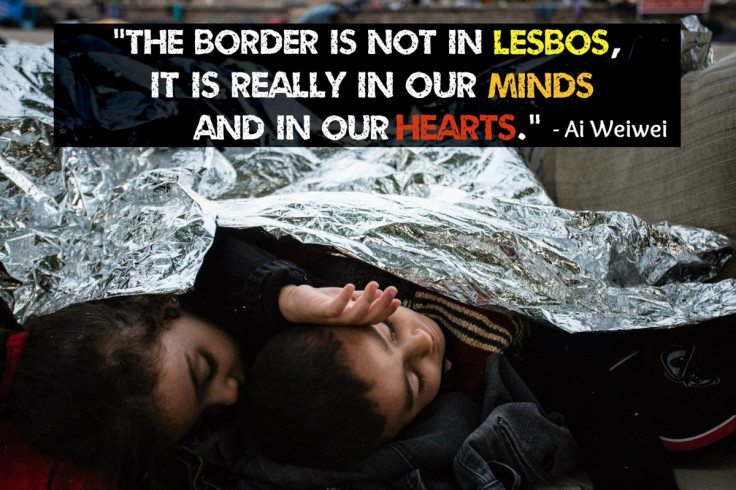Refugee crisis: First UK doctors start work on new Lesbos to Athens ferry project

Doctors of the World UK have launched a project to help with the urgent problem of giving medical assistance to refugees. On average, there are around 1,300 refugees on each ferry. They travel daily from Lesbos to the Athens port of Piraeus via the islands of Chios, Samos and Ikaria.
The first UK doctors started working on the ferries on 15 January and will live on the vessels during the 4-6 week placement period, only sleeping one night a week on the mainland. The first medics are Ceri Pritchard, a GP from Callandar in Stirlingshire, and Duncan Cushnie, a nurse from Tain in the County of Ross. The project will carry on until 31 March, but could be extended further.
There is a special clinic space on the ferry catering for the health needs of refugees and on average there are four health emergencies per crossing.
"The 10-hour crossing allows our medics to spend a significant amount of time with patients, which is not always possible in other places where refugees can pass through quickly," says Gareth Walker, international programme manager for Doctors of the World UK.
"One of the complaints from our medical teams elsewhere is that people have to leave quickly when things happen, including in the middle of a medical consultation, meaning people don't get the care they need."
The project is funded by UK Aid through the Start Network – a consortium of leading humanitarian NGOs – and is in collaboration with Hellenic Seaways, who run the ferries.
Refugees getting on the ferry from Lesbos. We're heading north to Idomeni on the Macedonian border to meet @DOTW_UK pic.twitter.com/Om3oLEI9ns
— Chris van Tulleken (@DoctorChrisVT) January 18, 2016Humanitarian crisis
Up to 20,000 refugees, many of them Syrian, are sleeping rough around the island's main port of Mytilini, waiting for Greek authorities to issue them with the travel permits that allow them board ferries to Athens, and from there journey through the Balkans to northern Europe.
Lesbos is the point of entry for around half of the 230,000 who have come to Greece. But the local authorities are overwhelmed by the crisis. There is only one small office in Mytilini to deal with the thousands of refugees – located in a dilapidated container unit.
It's not only foreign volunteers who are helping with the crisis. Greek volunteers and local citizens of the islands have been, and continue to be, first on the scene to help with those in distress. Fishermen, for example, often come across stalled or sinking dinghies and bring the refugees to shore or alert the coast guard.
Since the beginning of 2016, 31,244 migrants and refugees have arrived in Greece by sea. According to figures from the Greek Coast Guard, this is 21 times as many as the 1,472 recorded by the Coast Guard for the whole of January 2015.
The International Organization for Migration (IOM) reported that 48% of Greece's 2016 arrivals have been Syrians, 29% Afghans, 12% Iraqis, 3% Pakistanis and 2% Iranians.
Almost 90% of the newly arrived migrants are refugees and are allowed to cross Greece's border with the Former Yugoslav Republic of Macedonia (FYROM).
A father hugs his young daughter as they land on the #Greek island of #Lesbos pic.twitter.com/ORs6EJyVz8
— Alessandro Penso (@AlessandroPens2) January 10, 2016Aegean death toll increases in winter months
IOM also reported that the death toll in the Aegean has continued to rise with worsening weather conditions. Three shipwrecks have been recorded since 15 January 15, when the Greek Coast Guard rescued 20 Syrian and Iraqi migrants from a boat which capsized off Agathonisi Island. Three children – two boys and one girl – lost their lives.
On the same day the Coast Guard rescued 63 migrants from another boat, which capsized off Farmakonisi Island. On Saturday 16 January a survivor from another shipwreck swam to Samos Island and told authorities that he had been on board a boat with 15 other migrants. The Coast Guard launched a search and rescue operation and six bodies were recovered.
© Copyright IBTimes 2025. All rights reserved.






















